Reproducible, transparent, and adaptable data analysis with Snakemake and Datavzrd
Johannes Köster
2023




dataset
results
Data analysis
"Let me do that by hand..."

dataset
results
dataset
dataset
dataset
dataset
dataset


"Let me do that by hand..."
Data analysis
- check computational validity
- apply same analysis to new data
- check methodological validity
- understand analysis
Data analysis
Reproducibility
Transparency
- modify analysis
- extend analysis
Adaptability
>700k downloads since 2015
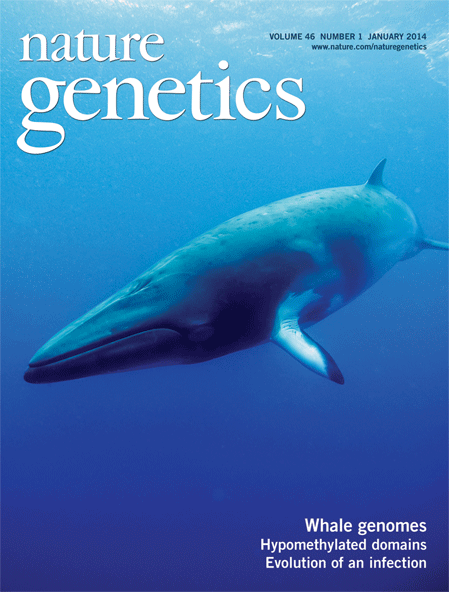

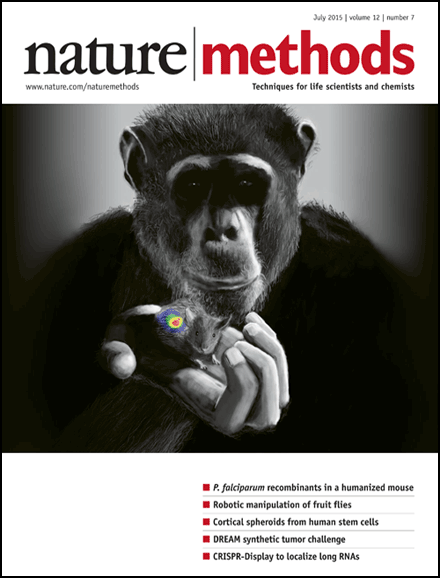

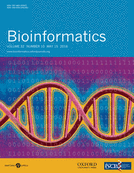


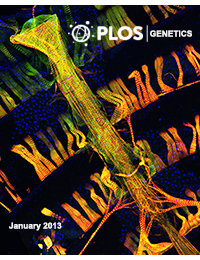




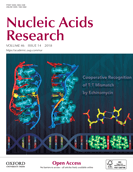


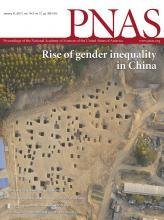


>2000 citations
>10 citations per week in 2022

- automation
- scalability
- portability
- readability
- documentation
- traceability
Data analysis
Reproducibility
Transparency
- readability
- portability
- scalability
Adaptability
Data analysis
- automation
- scalability
- portability
- readability
- documentation
- traceability
Reproducibility
Transparency
- readability
- portability
- scalability
Adaptability
dataset
results
dataset
dataset
dataset
dataset
dataset
Define workflows
in terms of rules
Define workflows
in terms of rules
rule mytask:
input:
"path/to/{dataset}.txt"
output:
"result/{dataset}.txt"
script:
"scripts/myscript.R"
rule myfiltration:
input:
"result/{dataset}.txt"
output:
"result/{dataset}.filtered.txt"
shell:
"mycommand {input} > {output}"
rule aggregate:
input:
"results/dataset1.filtered.txt",
"results/dataset2.filtered.txt"
output:
"plots/myplot.pdf"
script:
"scripts/myplot.R"Define workflows
in terms of rules
Define workflows
in terms of rules
rule mytask:
input:
"data/{sample}.txt"
output:
"result/{sample}.txt"
shell:
"some-tool {input} > {output}"rule name
how to create output from input
define
- input
- output
- log files
- parameters
- resources
rule mytask:
input:
"path/to/{dataset}.txt"
output:
"result/{dataset}.txt"
script:
"scripts/myscript.R"
rule myfiltration:
input:
"result/{dataset}.txt"
output:
"result/{dataset}.filtered.txt"
shell:
"mycommand {input} > {output}"
rule aggregate:
input:
"results/dataset1.filtered.txt",
"results/dataset2.filtered.txt"
output:
"plots/myplot.pdf"
script:
"scripts/myplot.R"Define workflows
in terms of rules

Boilerplate-free integration of scripts
rule mytask:
input:
"data/{sample}.txt"
output:
"result/{sample}.txt"
script:
"scripts/myscript.py"reusable scripts:
- Python
- R
- Julia
- Rust
- Bash
import pandas as pd
data = pd.read_table(snakemake.input[0])
data = data.sort_values("id")
data.to_csv(snakemake.output[0], sep="\t")Python:
data <- read.table(snakemake@input[[1]])
data <- data[order(data$id),]
write.table(data, file = snakemake@output[[1]])Boilerplate-free integration of scripts
R:
import polar as pl
pl.read_csv(&snakemake.input[0])
.sort()
.to_csv(&snakemake.output[0])Rust:
Jupyter notebook integration
rule mytask:
input:
"data/{sample}.txt"
output:
"result/{sample}.txt"
notebook:
"notebooks/mynotebook.ipynb"- Integrated interactive edit mode.
- Automatic generalization for reuse in other jobs.
Reusable wrappers
rule map_reads:
input:
"{sample}.bam"
output:
"{sample}.sorted.bam"
wrapper:
"0.22.0/bio/samtools/sort"reuseable wrappers from central repository
Reusable wrappers
Output handling
rule mytask:
input:
"data/{sample}.txt"
output:
temp("result/{sample}.txt")
shell:
"some-tool {input} > {output}"Output handling
rule mytask:
input:
"data/{sample}.txt"
output:
protected("result/{sample}.txt")
shell:
"some-tool {input} > {output}"Output handling
rule mytask:
input:
"data/{sample}.txt"
output:
pipe("result/{sample}.txt")
shell:
"some-tool {input} > {output}"Using and combining workflows
configfile: "config/config.yaml"
module dna_seq:
snakefile:
github("snakemake-workflows/dna-seq-gatk-variant-calling", path="workflow/Snakefile", tag="v1.17.0")
config:
config
use rule * from dna_seq# easily extend the workflow
rule plot_vafs:
input:
"filtered/all.vcf.gz"
output:
"results/plots/vafs.svg"
notebook:
"notebooks/plot-vafs.py.ipynb"Using and combining workflows
configfile: "config/config.yaml"
module dna_seq:
snakefile:
github("snakemake-workflows/dna-seq-gatk-variant-calling", path="workflow/Snakefile", tag="v1.17.0")
config:
config["dna-seq"]
use rule * from dna_seq as dna_seq_*# easily extend the workflow
rule plot_vafs:
input:
"filtered/all.vcf.gz"
output:
"results/plots/vafs.svg"
notebook:
"notebooks/plot-vafs.py.ipynb"module rna_seq:
snakefile:
github("snakemake-workflows/rna-seq-kallisto-sleuth", path="workflow/Snakefile", tag="v1.0.0")
config:
config["rna-seq"]
use rule * from rna_seq as rna_seq_*Data analysis
- automation
- scalability
- portability
- readability
- documentation
- traceability
Reproducibility
Transparency
- readability
- portability
- scalability
Adaptability
job selection
job resource usage
free resources
job temp file consumption
temp file lifetime fraction
job priority
job thread usage
Scheduling
temp file size
temp file deletion
DAG partitioning

--groups a=g1 b=g1
--groups a=g1 b=g1 --group-components g1=2
--groups a=g1 b=g1 --group-components g1=5
Scalable to any platform



workstation
compute server
cluster






grid computing
cloud computing



Between workflow caching
dataset
results
dataset
dataset
dataset
dataset
dataset
shared data
Between workflow caching

Data analysis
- automation
- scalability
- portability
- readability
- documentation
- traceability
Reproducibility
Transparency
- readability
- portability
- scalability
Adaptability
rule mytask:
input:
"path/to/{dataset}.txt"
output:
"result/{dataset}.txt"
conda:
"envs/some-tool.yaml"
shell:
"some-tool {input} > {output}"Conda integration
channels:
- conda-forge
dependencies:
- some-tool =2.3.1
- some-lib =1.1.2Container integration
rule mytask:
input:
"path/to/{dataset}.txt"
output:
"result/{dataset}.txt"
container:
"docker://biocontainers/some-tool#2.3.1"
shell:
"some-tool {input} > {output}"Containerization
containerized:
"docker://username/myworkflow:1.0.0"
rule mytask:
input:
"path/to/{dataset}.txt"
output:
"result/{dataset}.txt"
conda:
"envs/some-tool.yaml"
shell:
"some-tool {input} > {output}"snakemake --containerize > DockerfileData analysis
- automation
- scalability
- portability
- readability
- documentation
- traceability
Reproducibility
Transparency
- readability
- portability
- scalability
Adaptability
Self-contained HTML reports
Datavzrd: low-code
interactive result views
Input:
- set of tables
- relations between tables
- set of rendering definitions
Output:
- portable interactive visual presentation
- static printable version
name: My oscar report
default-view: oscars
datasets:
oscars:
path: "data/oscars.csv"
links:
link to oscar plot:
column: age
view: oscar-plot
link to movie:
column: movie
table-row: movies/Title
movies:
path: "data/movies.csv"
links:
link to oscar entry:
column: Title
table-row: oscars/movie
views:
oscars:
dataset: oscars
desc: |
### All winning oscars beginning in the year 1929.
This table contains *all* winning oscars for best actress and best actor.
page-size: 25
render-table:
columns:
age:
plot:
ticks:
scale: linear
domain:
- 20
- 100
name:
link-to-url: "https://lmgtfy.app/?q=Is {name} in {movie}?"
movie:
link-to-url: "https://de.wikipedia.org/wiki/{value}"
award:
plot:
heatmap:
scale: ordinal
domain:
- Best actor
- Best actress
range:
- "#add8e6"
- "#ffb6c1"
index(0):
display-mode: hidden
regex('birth_.+'):
display-mode: detail
movies:
dataset: movies
render-table:
columns:
Genre:
ellipsis: 15
imdbID:
link-to-url: "https://www.imdb.com/title/{value}/"
Title:
link-to-url: "https://de.wikipedia.org/wiki/{value}"
imdbRating:
precision: 1
plot:
bars:
scale: linear
domain:
- 1
- 10
Rated:
plot-view-legend: true
plot:
heatmap:
scale: ordinal
color-scheme: accent
oscar-plot:
dataset: oscars
desc: |
## My beautiful oscar scatter plot
*So many great actors and actresses*
render-plot:
spec-path: ".examples/specs/oscars.vl.json"
movies-plot:
dataset: movies
desc: |
All movies with its *runtime* and *ratings* plotted over *time*.
render-plot:
spec-path: ".examples/specs/movies.vl.json"



+

Snakemake workflow catalog
Conclusion
Snakemake covers all aspects of fully reproducible, transparent, and adaptable data analysis.
Datavzrd can be used to rapidly obtain visual interactive interfaces to tabular results.
https://snakemake.github.io
https://github.com/datavzrd/datavzrd
Snakemake 8.0
transforming towards a plugin architecture
- executors
- remote storage
- scheduler
- script/notebook support
- DAG inference
backed by
- stable interface packages with independent versioning
developed by
- community
- individuals
- companies
Snakemake 8.0
language updates
- decouple language version from Snakemake runtime
- allow specification of language version in the workflow definition
- allow specification of auxilliary workflow dependencies in the Snakefile
- introduce semantic helper functions for branching, collecting, value lookups, evaluation of wildcards
- more self contained rules
- much less Python code
- increased readability
import pandas as pd
samples = pd.read_csv("samples.tsv", sep="\t")
configfile: "config.yaml"
rule all:
input:
"results/switch~someswitch.column~sample.txt",
rule a:
output:
"a/{sample}.txt",
shell:
"echo a > {output}"
rule b:
input:
branch(evaluate("{sample} == '100'"), then="a/{sample}.txt"),
output:
"b/{sample}.txt",
shell:
"echo b > {output}"
rule c:
input:
branch(
evaluate("{sample} == '1'"),
then="a/{sample}.txt",
otherwise="b/{sample}.txt",
),
output:
"c/{sample}.txt",
shell:
"cat {input} > {output}"
rule d:
output:
"test.txt",
shell:
"echo d > {output}"
rule e:
input:
collect("c/{item.sample}.txt", item=lookup(query="{col} <= 2", within=samples)),
branch(lookup(dpath="switches/{switch}", within=config), then="test.txt"),
output:
"results/switch~{switch}.column~{col}.txt",
shell:
"cat {input} > {output}"Sustainable data analysis with Snakemake and Datavzrd
By Johannes Köster
Sustainable data analysis with Snakemake and Datavzrd
Non-bio-related talk about Snakemake
- 767




